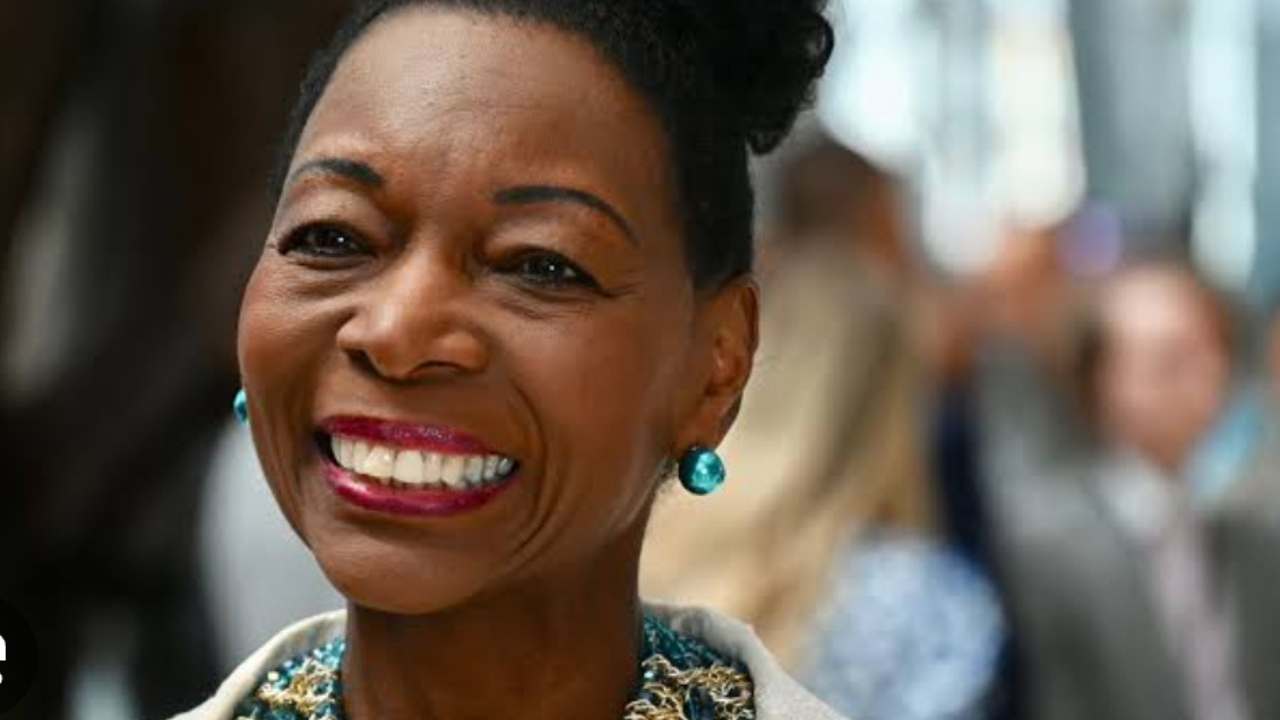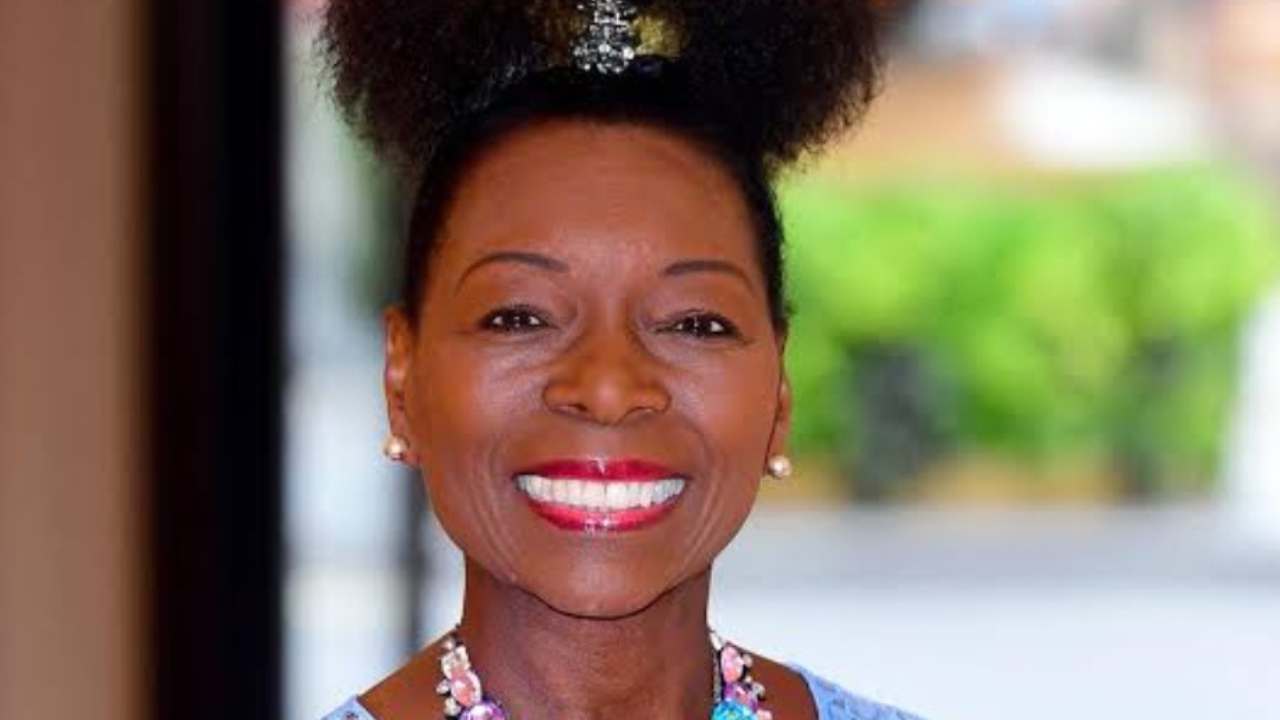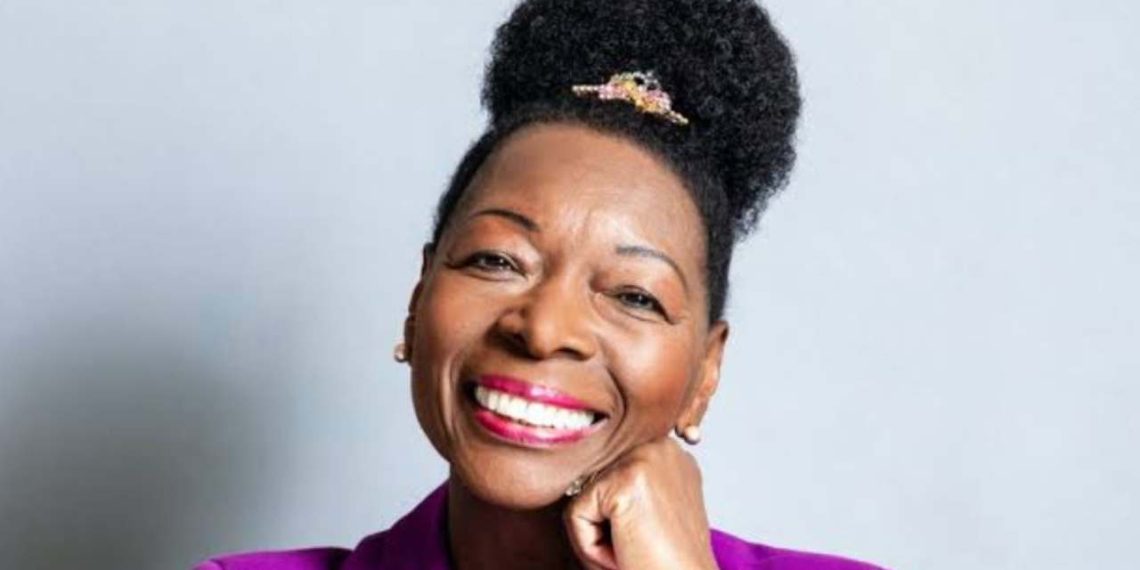Baroness Benjamin has garnered numerous accolades throughout her illustrious career, making the Bafta Fellowship another esteemed addition.
Despite her extensive achievements as a presenter, producer, and campaigner, she remains genuinely thrilled by the acknowledgment bestowed upon her by the British Academy.
“I cried,” she says. “Looking back at all my work in television over 50 years.
“Remembering the joyful moments. Working with some incredible people. But also remembering the challenges.”
Those challenges have been there throughout her TV career.

In 1974 prison drama Within These Walls, she was cast as a troubled teenager, but disliked the unrealistic dialogue she was given.
“I said, ‘You know, for a black 16-year-old shoplifter, these lines need to change,'” she remembers.
“Fortunately, they allowed me to do that. And it was one of the best things I could ever have done.
“Just because I was being authentic. I was being real. People could identify with what I’m saying. And everything I’ve done in television has been just that. To be me.”
Benjamin’s authenticity resonated with younger viewers when she joined the presenting team of BBC children’s show Play School in 1976.
Her presence instantly elevated her to an aspirational figure for the millions of children tuning in.
As a viewer who grew up during her tenure on the show, I can personally attest to her instrumental role in inspiring children from ethnic minorities, demonstrating that seemingly impossible dreams, such as pursuing a career in television, could indeed become a reality.
“When I did Play School,” she says, “the number of people who said ‘You just being there opened doors for me, made me know, as I was growing up, four or five years old watching you, that anything is possible.'”
All White Faces
It was on Play School that she began campaigning for stronger representation.
“All the illustrations when I told the stories were of white children,” she recalls.
“I said to the producer, ‘Why can’t we have some black and Asian and Chinese faces in the illustrations rather than all white faces?'”
Since her early days on Play School, Lady Benjamin has dedicated herself to leveraging her television experience to improve the lives of individuals, especially children.
Her media prominence and unwavering commitment to youth issues have significantly bolstered her efforts.
As a prolific campaigner and fierce advocate for young people, her impact is unparalleled.Lady Benjamin’s contributions extend beyond her on-screen persona.
She serves as a patron for various children’s charities, holds vice-presidential positions at Barnardo’s and NCH Action for Children, and contributes as a member of the British Board of Film Classification’s advisory panel on children’s viewing.
In recognition of her remarkable service, Lady Benjamin was honored as a dame in the 2020 New Year Honours list.
Also, she was elevated to the House of Lords as Baroness Benjamin of Beckenham.
“I got a tax credit for children’s programmes done. I got ITV, Channel Four and Channel 5 to actually start making children’s programmes. Because up until a few years ago, only 1% of children’s programmes were made in this country.
The Benjamin Amendment
“And the ministers who changed the law for me said, ‘”We’re doing it for you Floella’. In fact that legislation was called the Benjamin amendment.”
Of course, since the days when Benjamin started in children’s television, the media landscape has changed immeasurably. But she says the same principles apply.
“Children are now migrating to online platforms,” she says. “They’re leaving public service broadcasting in their droves. So the challenge is to get public service broadcasting and online content to be worthy for children.

“We’ve got to ensure that we give high quality content for children wherever it’s coming from. They are going to be watching on YouTube, TikTok, online platforms, wherever. Whoever is serving them has got to realise the responsibility.”
Lady Benjamin’s esteemed status as a beloved national figure was solidified last year during what was arguably the pinnacle of her television career.
She had the honor of carrying the sovereign’s sceptre with dove as part of the procession at King Charles’s coronation, an event witnessed by an immense television audience.
Reflecting on the experience, Lady Benjamin expressed that the public’s reaction afterward was overwhelmingly positive and heartfelt.
“They said when they saw me come on in Westminster Abbey on the screen, they remembered their childhood. They remembered Play School. And they went ‘yes’, and they felt part of the Coronation, too.
“Because childhood lasts a lifetime. And all those memories I gave to the children have stayed with them. And they know how much I love them.”
Play School babies
For many, her campaigning work and her position as a role model means she has long been regarded as a national treasure.
“You know what it means to me,” she laughs. “It’s my Play School babies telling me almost every single day of my life that they loved me and thanked me for showing them that unconditional love.
“Some say that they lived in a children’s home. Some say that they lived in a dark place, horrors that were part of their lives. Having me as part of their life made them feel that there was hope.”
Her official title may be the Baroness Benjamin OM, DBE, DL, but she belongs to the elite group of well-known figures recognized by a single name – Floella, akin to Kylie and Madonna.
“I mean it’s the loveliest feeling,” she reflects. “I always take it with a sense of gratitude that I have been blessed to be in that kind of position, and to make people feel anything is achievable.”





